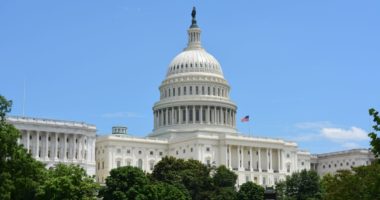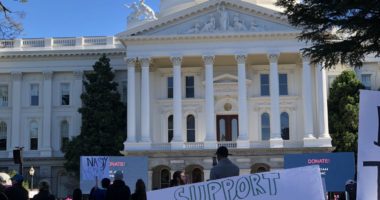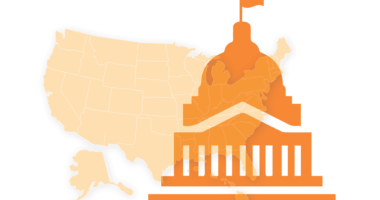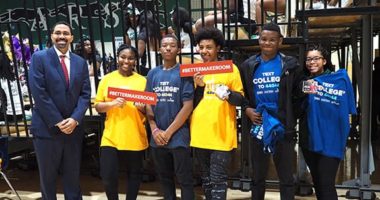Higher Education Advocates Call on Congress to Protect Pell Grant Funding
The Honorable Roy Blunt
Chairman
Senate Appropriations Labor, Health and Human Services, Education, and Related Agencies Subcommittee
Washington, DC 20510
The Honorable Patty Murray
Ranking Member
Senate Appropriations Labor, Health and Human Services, Education, and Related Agencies Subcommittee
Washington, DC 20510
Dear Chairman Blunt and Ranking Member Murray:
The undersigned organizations representing students, veterans, colleges, consumers, financial aid administrators, college access providers, scholarship providers, education advocates, civil rights advocates, and the business community, write you today to stress the critical importance of retaining all current Pell Grant funds in the Pell Grant program. The Fiscal Year 2017 spending agreement already rescinded $1.3 billion from Pell Grants, and critical investments are needed to cover the loss of the grant’s annual inflation adjustment, which is scheduled to expire after this year. We implore you to reject any rescission from Pell Grants in Fiscal Year 2018, and instead use existing funds to responsibly increase the maximum Pell Grant award. We furthermore urge you to work toward a funding agreement that provides sequester relief with parity between defense and non-defense spending, and adequate resources to support all of the important programs in this appropriations bill, including Pell.
As you know, Pell Grants are the foundation of our national investment in higher education, and are essential for providing low-income students the opportunity to attend and complete college, and to pursue careers in an economy that increasingly requires a postsecondary education. College graduates have higher wages and lower unemployment rates than their less educated peers, and Pell Grants are one of the keystones for growing a diverse, productive society and workforce.
Pell Grants help over 7.5 million students — including one-third of all White students, two-thirds of all Black students, and half of all Latino students — continue their education after high school. The vast majority of these students come from families making $40,000 or less, and the median family income of recipients has been declining over time. Yet the current maximum Pell Grant covers less than one‐third of the cost of attending a four‐year public college, the lowest share in more than 40 years. Pell Grant students are already more than twice as likely as others to have student loans, and they graduate with an average of nearly $5,000 more debt than their higher income peers.
Absent Congressional action, Fiscal Year 2018 will be the first time in six years that the Pell Grant will not increase to keep pace with inflation, resulting in a cut to the maximum grant in real terms, and further decline in the already low purchasing power of the grant. Allowing the grant to lose value will increase Pell Grant students’ already high debt burden, or force them to forgo college altogether, which is why over 300 colleges and advocates urged Congress to continue indexing the Grant to inflation.
To support students and a growing economy, Pell dollars must remain in the Pell Grant program, not be cut to cover gaps created by insufficient overall funding levels. Instead of rescinding Pell funds, we urge you to invest them in the Pell Grant by increasing the maximum award by an amount at least equal to what would be provided with an inflation adjustment while ensuring that Pell Grants remain on solid fiscal footing going forward.
Signed,
| 10,000 Degrees | Achieve Atlanta | Active Advocacy Coalition |
| Alliance for Youth Action | American Association of State Colleges and Universities (AASCU) | American Association of University Women (AAUW) |
| American Council on Education (ACE) | American Federation of State, County and Municipal Employees (AFSCME) | American Federation of Teachers (AFT) |
| Association of Catholic Colleges and Universities (ACCU) | Association of Public and Land-grant Universities (APLU) | AVID Center |
| Cal State Student Association (CSSA) | Center for Law and Social Policy (CLASP) | Chicago Urban League |
| College Beyond | College Bound St. Louis | College Forward |
| College Now Greater Cleveland | College Possible | CollegeTracks |
| Consumer Action | Denver Scholarship Foundation | East Bay Leadership Council |
| First Graduate | Forward Montana | Generation Progress |
| Georgetown University Center on Education and the Workforce | Hispanic Association of Colleges and Universities (HACU) | Higher Ed, Not Debt (HEND) |
| iMentor | Institute for Higher Education Policy (IHEP) | John Burton Advocates for Youth |
| Latino U College Access | Lenawee College Access Network | Los Angeles Area Chamber of Commerce |
| NAACP | National Association for College Admission Counseling (NACAC) | National Association for Equal Opportunity in Higher Education (NAFEO) |
| National Association of Independent Colleges and Universities (NAICU) | National Association of Student Financial Aid Administrators (NASFAA) | National College Access Network (NCAN) |
| One Wisconsin Now | OneGoal | PHENOM (Public Higher Education Network of Massachusetts) |
| Reach Higher Montana | Scholarship America | Silicon Valley Leadership Group |
| Southern California College Access Network | St. Louis Graduates | Student Debt Crisis |
| Student Senate for California Community Colleges | Student Veterans of America (SVA) | Students United (formerly Minnesota State Universities Student Association) |
| The Campaign for College Opportunity | The Education Trust | The Higher Education Loan Coalition |
| The Institute for College Access & Success (TICAS) | The National Association of State Student Grant and Aid Programs (NASSGAP) | The Scholarship Foundation of St. Louis |
| The Tennessee College Access and Success Network | TRiO Programs at Virginia Tech | uAspire |
| UNCF | United States Student Association (USSA) | University of California Student Association |
| U.S. PIRG | Veterans Education Success (VES) | Yes We Must Coalition |
| Young Invincibles |









